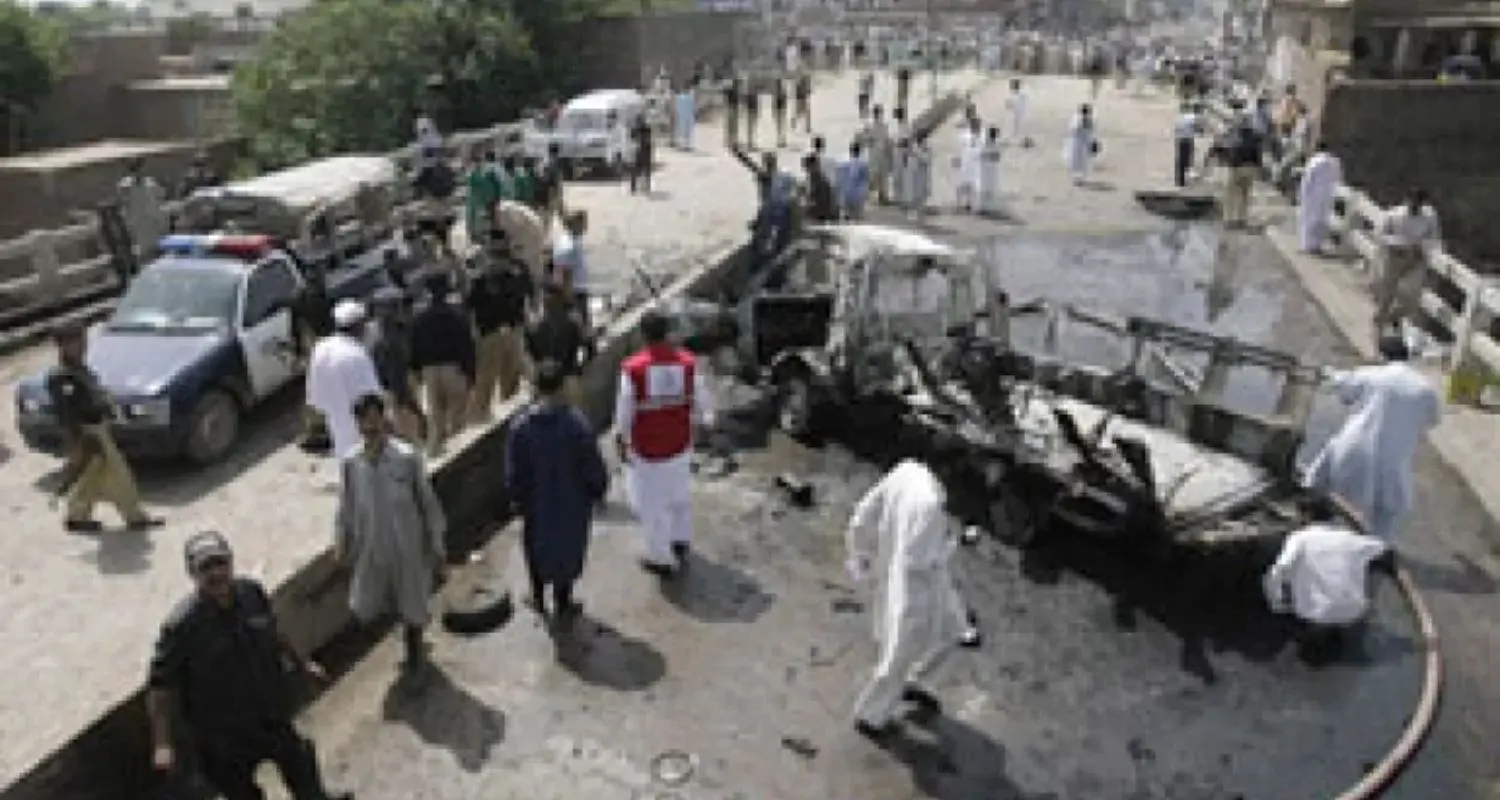In a devastating airstrike early Monday morning, at least 30 people many of them women and children, were killed when the Pakistan Air Force (PAF) bombed a village in the Tirah Valley region of Khyber Pakhtunkhwa province.
The airstrikes, reportedly conducted around 2 a.m., targeted Matre Dara, a predominantly Pashtun village. According to multiple sources, eight LS-6 precision-guided bombs were dropped from JF-17 fighter jets, flattening large sections of the area.
Although the military claims the operation was aimed at Tehreek-e-Taliban Pakistan (TTP) hideouts, local residents and media reports state that all the fatalities were civilians. Disturbing visuals from the site showed bodies of children strewn across debris and families digging through rubble in search of survivours.
Conflicting Accounts: Civilian Deaths or Militant Strike?
The circumstances surrounding the incident remain contentious. While initial reports pointed to a deliberate air operation by the PAF, local police have offered a different explanation. Police officer Zafar Khan said the blast occurred after bomb-making materials stored by militants detonated inside a compound believed to be a TTP base.
“At least 10 civilians, including women and children, were killed, along with at least 14 militants,” Khan told reporters. He identified the site as a bomb factory run by two known TTP commanders Aman Gul and Masood Khan. Khan further accused the militants of using civilians as shields and confirmed that weapons had been hidden in mosques across nearby districts.
Rising Civilian Toll Sparks Human Rights Concerns
The airstrike has triggered renewed criticism of Pakistan’s military tactics in tribal regions. Amnesty International has warned against the continued use of drone and airstrikes in civilian-populated areas.
“Pakistani authorities have failed to take action to protect the lives and property of civilians in Khyber Pakhtunkhwa who continue to pay the price of an escalating number of drone strikes in the province,” said Isabelle Lassee, Deputy Regional Director for South Asia. She referred to a recent drone strike that killed a child as part of “an alarming series of attacks which have escalated since March of this year.”
Military Offensive Intensifies in the Region
The airstrike follows a wave of counterterrorism operations carried out by Pakistan’s security forces in recent weeks. On Sunday, seven TTP fighters were reported killed in an intelligence-based operation in Dera Ismail Khan, a district bordering South Waziristan.
Earlier this month, on September 13–14, Pakistani forces claimed to have eliminated 31 TTP militants during two separate operations in Khyber Pakhtunkhwa.
Despite these actions, the region remains volatile. According to official data, Khyber Pakhtunkhwa witnessed 605 terror incidents between January and August 2025, with 138 civilian deaths and 79 security personnel killed.
TTP Regrouping in Border Zones
Security analysts warn that terror outfits, particularly Tehreek-e-Taliban Pakistan, are regrouping in remote, mountainous areas near the Afghan border. Following Pakistan’s Operation Sindoor, which targeted militant bases across Pakistan and Pakistan-occupied Kashmir, many extremist groups are said to be relocating deeper into Khyber Pakhtunkhwa.
The region’s difficult terrain marked by caves and old mujahideen hideouts from the Soviet and U.S.-Afghan wars — makes it an ideal safe haven. Militants are reportedly rebuilding infrastructure abandoned decades ago.
Islamabad Pressures Kabul Over TTP Activity
The Pakistani government has also intensified diplomatic pressure on Afghanistan, blaming its western neighbor for providing refuge to TTP fighters.
Last week, Prime Minister Shehbaz Sharif issued a stern warning, “Afghanistan must choose between siding with terrorists or standing with Pakistan.”
Officials claim that since the Afghan Taliban’s return to power in 2021, the TTP has grown more emboldened, leveraging cross-border links and sanctuary to launch attacks inside Pakistan.
Families Left Devastated, Rescue Continues
As rescue teams continue to recover bodies and search for survivors in Matre Dara, local residents are left to deal with the trauma of yet another tragedy. While the government defends its counterterrorism policies, humanitarian organisations are calling for immediate investigations and accountability.
The death toll may rise further, with several injured victims still in critical condition and many more believed to be trapped under the debris.
The latest strike in Tirah Valley highlights the difficult balance between fighting terrorism and protecting civilian lives. As Pakistan doubles down on its operations against the TTP, questions remain over the human cost of its military campaigns — particularly in conflict-ridden, marginalised regions like Khyber Pakhtunkhwa.


